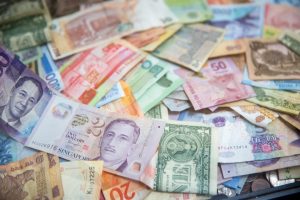Forex trading is a popular investment option for individuals who are looking to earn money through speculative trading. Forex brokers play a crucial role in facilitating trades between buyers and sellers in the forex market. However, many people are often left wondering how forex brokers make money. In this article, we will take a closer look at the different ways in which forex brokers make money.
1. Spreads
One of the most common ways forex brokers make money is through spreads. Spreads refer to the difference between the bid and ask prices of currency pairs. Forex brokers typically offer two prices for each currency pair: the bid price and the ask price. The bid price is the price at which buyers are willing to purchase a currency pair, while the ask price is the price at which sellers are willing to sell a currency pair.
For instance, if a forex broker quotes a bid price of 1.2000 and an ask price of 1.2005 for EUR/USD, the spread would be 5 pips (0.0005). Forex brokers make money by charging traders a spread on each trade they make. The spread is usually calculated as a percentage of the trade size, and it can vary depending on the currency pair being traded and market conditions.
2. Commissions
In addition to spreads, forex brokers may also charge traders a commission for each trade they make. Commissions are usually fixed fees that are charged on a per-trade basis. Forex brokers typically charge commissions on trades made through ECN (Electronic Communication Network) accounts. ECN accounts provide traders with direct access to the interbank market, which means that trades are executed at the best available prices offered by liquidity providers.
Forex brokers charge commissions on ECN trades to cover the costs of providing traders with direct access to the interbank market. Commissions can vary depending on the broker and the currency pair being traded.
3. Swap fees
Swap fees, also known as rollover fees, are another way forex brokers make money. Swap fees are charged when traders hold positions overnight or over the weekend. Forex brokers charge swap fees to cover the costs of holding positions in the interbank market.
Swap fees are calculated based on the difference in interest rates between the two currencies in the currency pair being traded. If a trader is long on a currency with a higher interest rate than the currency they are short on, they will earn a swap fee. If a trader is short on a currency with a higher interest rate than the currency they are long on, they will pay a swap fee.
4. Market-making
Some forex brokers act as market-makers, which means that they take the other side of their clients’ trades. Market-making brokers create their own market by offering their clients buy and sell prices for currency pairs. When a trader buys a currency pair, the broker sells the same currency pair, and vice versa.
Market-making brokers make money by charging traders a spread on each trade they make. Market-making brokers can manipulate the spreads they offer to their clients, which can result in traders paying higher costs for trades.
5. Affiliate programs
Finally, forex brokers may also make money through affiliate programs. Affiliate programs are marketing partnerships between brokers and individuals or companies that promote their services. Forex brokers typically pay affiliates a commission for each new client they refer to the broker.
Affiliate programs are a cost-effective way for forex brokers to acquire new clients. Affiliates can promote brokers through their own websites, social media channels, and other marketing channels. Forex brokers benefit from increased brand exposure and new clients, while affiliates earn commission on each new client they refer.
In conclusion, forex brokers make money through a variety of ways, including spreads, commissions, swap fees, market-making, and affiliate programs. It is important for traders to understand how their brokers make money to ensure that they are not being charged excessive fees or experiencing unfair trading conditions. When choosing a forex broker, traders should consider the different ways the broker makes money and how this will impact their trading costs.






